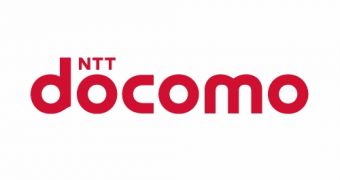The four major players in the mobile phone industry, NTT DoCoMo, Renesas, Fujitsu and Sharp, have announced that they are working on the development of SH-Mobile G4 single-chip LSI device, together with on a platform that will incorporate it, and that will support HSUPA 1, HSDPA2, W-CDMA and GSM/GPRS/EDGE (2G) mobile telephony standards. The joint project is scheduled to be completed by the end of the fourth quarter of 2009 (meaning, in January-March 2010).
Before we go on, let’s see what HSUPA and HSDPA are all about. HSUPA stands for High-Speed Uplink Packet Access, and is an enhanced and higher-speed version of the 3G W-CDMA uplink data communication standard. Most likely, you already know that HSDPA means High-Speed Downlink Packet Access, being an enhanced and higher-speed version of the 3G W-CDMA downlink data communication standard.
The SH-Mobile G4 chip will be fabricated using 45-nm technology, in order to enable highly integrated functions and also extra-fast processing. Thus, the chip will have enhanced functionality and improved performance for apps handling HD3 video and 3-D graphic. This will basically allow users to see videos on their mobiles in higher definition, but also to play more graphic-rich video games. Also, the chip will come with HSUPA support, thus allowing uplink speeds of maximum 5.7Mbps, meaning 15 times faster than the 384kbps used now. In addition to this, users will benefit from HSDPA cat.8 for ultra-fast downlink speeds (max. 7.2 Mbps).
NTT DoCoMo and Renesas have long collaborated in the development of SH-Mobile G series chips, but now the two have also included Fujitsu and Sharp, which will work on the development of the mobile phone platforms. In doing so, the new platform will eliminate the need of developing basic functions independently, thus reducing time and costs.
Renesas has plans to offer the platform on the worldwide mobile market, in addition to the customers in Japan, for whom the platform will first be made available.

 14 DAY TRIAL //
14 DAY TRIAL //